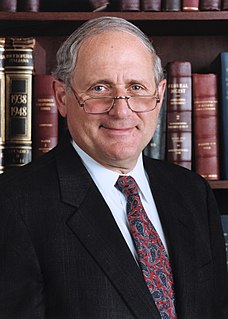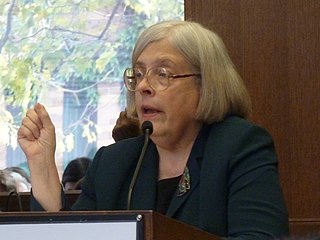A Quote by Robert Higgs
But politicians who talk about failed policies are just blowing smoke. Government policies succeed in doing exactly what they are supposed to do: channeling resources bilked from the general public to politically organized and influential interests groups.
Related Quotes
I come back to what I had said earlier: the policies might be there but are people benefiting from the policies? You do find that in many instances, though the policies exist, they are not having the necessary impact. That is a particular challenge in local government, because that is where all the services get delivered.
If they understand, which I believe they really are sensing, that the alternative the Republicans have been offering is to repeal what we've done, to go back to Bush policies - and if you asked the public what would you prefer, Bush economic policies or Obama economic policies, they take and prefer Obama economic policies.
The economical policies that are instigated really makes you think that the American government is a bunch of evil bastards. So just because you're black, you're still representing that government, and when Obama came into office he enacted the same policies that we would critique other presidents for.
To oppose the policies of a government does not mean you are against the country or the people that the government supposedly represents. Such opposition should be called what it really is: democracy, or democratic dissent, or having a critical perspective about what your leaders are doing. Either we have the right to democratic dissent and criticism of these policies or we all lie down and let the leader, the Fuhrer, do what is best, while we follow uncritically, and obey whatever he commands. That's just what the Germans did with Hitler, and look where it got them.
The dreams of "leaving it up to the market" or of returning to a politically neutral gold standard cannot succeed because the nature of the monetary system has a profound impact on the interests of powerful groups and states. Affected groups and states will always try to intervene in the operation of the system to make it serve their interests.
Why do Americans find government so baffling and irritating-even though many of us depend on public programs for a secure retirement, an affordable mortgage, or a college loan? In this timely and important book, political scientist Suzanne Mettler explains how the United States has come to rely on hidden, indirect policies that privilege special interests but puzzle regular citizens. American democracy can do better, and she shows how. Politicians and the public alike have much to learn from her brilliant and engaging analysis.




































